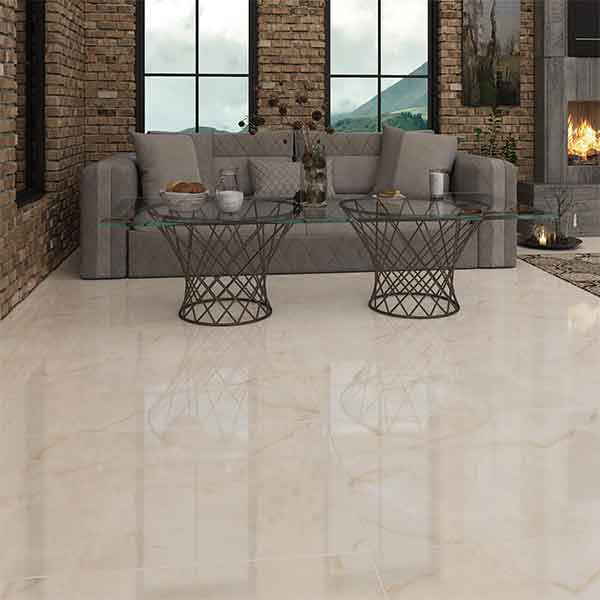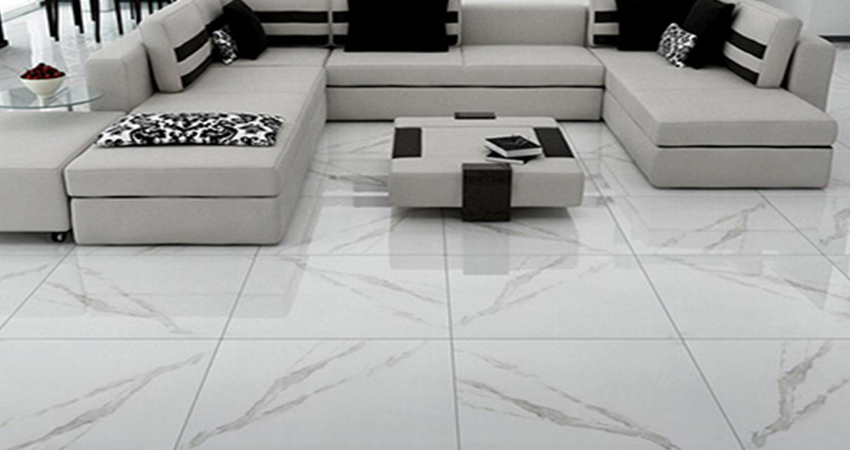:When choosing tiles for your home, the following points can help you
Durability and Resilience: Tiles should be resistant to scratches and damage, particularly in high-traffic areas
Water Absorption: For humid spaces like bathrooms and kitchens, choose tiles with low water absorption to prevent damage from moisture
Design and Color: Selecting the right design and color can significantly impact the beauty and interior decor of your home. Pay attention to how it coordinates with other decor elements
Size and Shape: Larger tiles can make a space appear bigger, while different shapes can enhance the overall design
Surface and Texture: Glossy tiles can have a more attractive appearance, but matte tiles may be more suitable for high-traffic areas
Price: Keep your budget in mind and try to select the best quality within your price range
Installation and Maintenance: Some tiles may require professional installation. Additionally, easy maintenance and cleaning are important
Space Suitability: Each type of tile is suitable for specific areas. For example, certain tiles are designed for outdoor spaces, which should be considered
By taking these points into account, you can make a better choice for the tiles in your home
Buy matte brick-patterned ceramic + special price

:Durability and resistance
The durability and resistance of ceramics depend on factors such as the type of raw materials, the manufacturing process, and their thickness. Ceramics made from high-quality clay, silica, and other materials generally have higher resistance to scratches and impacts. Additionally, choosing ceramics with the appropriate hardness level can contribute to their longevity and maintain their aesthetic appeal. In high-traffic areas, it is advisable to use high-resistance ceramics to prevent potential damage
:Water Absorption
Water absorption in ceramics refers to the amount of water that a ceramic material can absorb when submerged in water. This property is crucial because it affects the durability, strength, and usability of the ceramic. Lower water absorption rates typically indicate higher quality ceramics, making them more suitable for applications like flooring and wall tiles, where exposure to moisture is common. High water absorption can lead to issues such as staining, cracking, and overall degradation of the material over time. Therefore, it is essential to consider this factor when selecting ceramics for specific environments
:Design and Color
Design and color play a significant role in the aesthetic appeal and functionality of ceramics. The design can range from intricate patterns and textures to simple, modern styles, allowing for versatility in various interior and exterior applications. Color choices also impact the overall ambiance of a space; brighter colors can create a lively atmosphere, while neutral tones may promote a calming effect. Additionally, certain colors and designs can enhance or complement existing decor, making ceramics a popular choice for flooring, wall tiles, and decorative pieces. It’s essential to select designs and colors that align with personal taste and the intended use of the ceramic products
:Size and Shape
Size and shape are crucial factors in the application and aesthetic of ceramics. Various sizes and shapes allow for flexibility in design, making it possible to create unique patterns and layouts. Larger tiles can create a sense of spaciousness, while smaller tiles may be used for intricate designs or mosaics. Additionally, different shapes—such as square, rectangular, hexagonal, or irregular—can add visual interest and complement different architectural styles
When selecting ceramics, it’s important to consider how size and shape will affect installation, maintenance, and overall appearance. Properly chosen dimensions can enhance functionality, while creative shapes can elevate the design aspect of spaces
:Surface and Texture
Surface and texture significantly influence the look and feel of ceramics, as well as their performance characteristics. A smooth surface offers an elegant
Choosing the Perfect Staircase Tiles: A Complete Buying Guide















